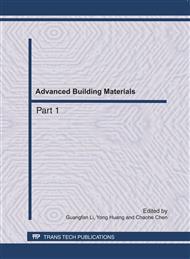p.2919
p.2923
p.2927
p.2931
p.2935
p.2939
p.2945
p.2949
p.2955
The Impact of Vegetation on Mitigating Heat Island Intensity in Four Major Cities in China
Abstract:
Vegetation evaporation is believed to be an important control measure in heat-island mitigation. The impact of vegetation on mitigating heat island intensity in four major cities in China is investigated using a numerical method. The simulation results show that increasing vegetation cover can significantly reduce outdoor air temperature in summer in the four cities investigated. However, the evaporation rates of plant and magnitude of temperature decreases are different in the four cities because different climate characters.
Info:
Periodical:
Pages:
2935-2938
Citation:
Online since:
May 2011
Keywords:
Price:
Сopyright:
© 2011 Trans Tech Publications Ltd. All Rights Reserved
Share:
Citation:


